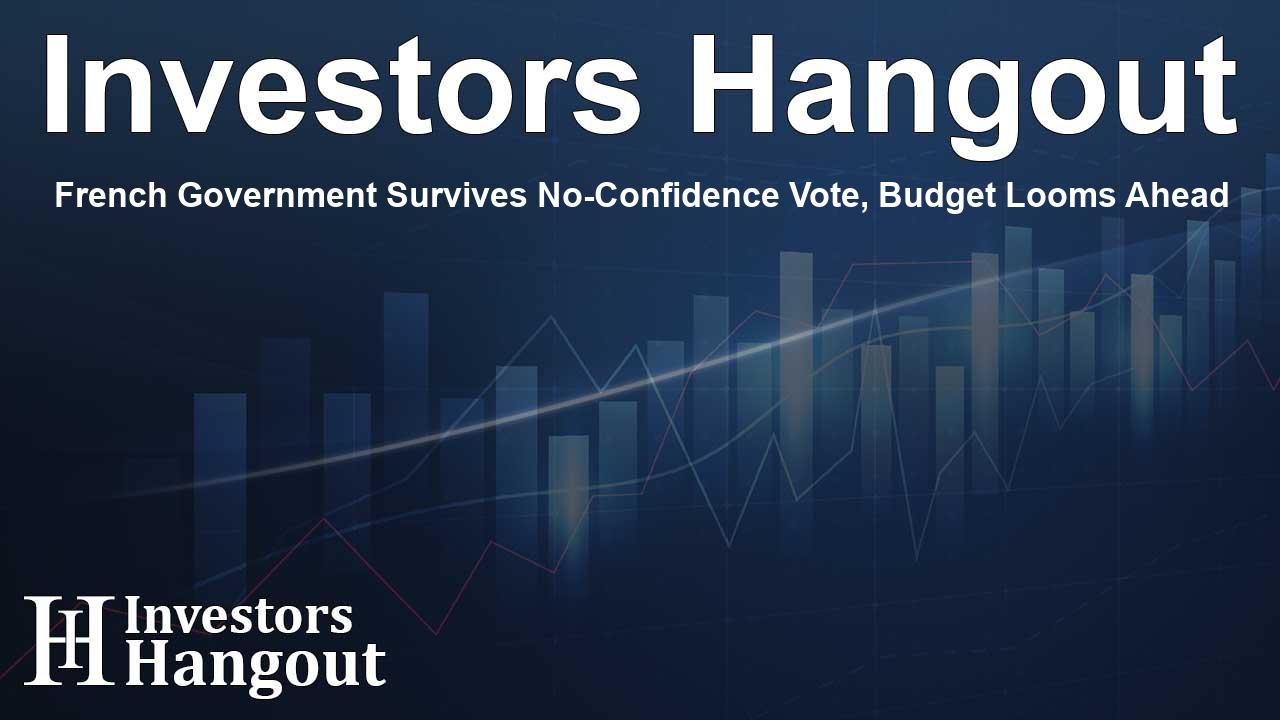French Government Survives No-Confidence Vote, Budget Looms Ahead

French Prime Minister Overcomes No-Confidence Motion
In a significant political event, the newly appointed French Prime Minister Michel Barnier has faced his first major challenge. Recently, a no-confidence motion, introduced by leftist lawmakers, failed to gather enough support to topple his center-right government. This move demonstrates the current political dynamics in France and the complexities of coalition governance.
The Political Landscape Following the Election
President Emmanuel Macron appointed Barnier as Prime Minister after a tumultuous election cycle that resulted in a hung parliament, where no single party holds a clear majority. Barnier’s government significantly relies on support from far-right factions, placing it in a precarious position, especially with increasing dissent from leftist representatives.
The Failed No-Confidence Motion
The no-confidence motion, introduced by the opposition, was anticipated to be a challenging endeavor. The motion required support from various parties, including the far-right National Rally (RN). However, RN lawmakers indicated they were not willing to back the proposal, which led to its inevitable failure. Only 197 lawmakers showed their support, far below the 289 votes necessary to bring the government down.
Implications for Barnier's Administration
With the no-confidence measure defeated, the focus shifts towards Barnier’s forthcoming budget proposal, which is expected to be unveiled soon. Analysts suggest that the budget may introduce significant tax hikes and cuts to government spending to address the country’s growing deficit, estimated at around 60 billion euros ($65.9 billion).
Barnier's Budget Challenges
This section of Barnier's governance will undoubtedly be a crucial test. The proposed budget is anticipated to incite debate within Parliament, especially given the economic adjustments it might necessitate. As the government seeks to balance fiscal responsibility with social equity, the interactions with leftist parties and the far-right will be closely watched.
Looking Ahead
There is a notable expectation surrounding Barnier’s approaches to tax reforms. The RN's Marine Le Pen has publicly signaled a willingness to support Barnier, albeit with conditions that tax increases must correspond with financial relief for lower and middle-income families. This suggests a potential collaborative effort amidst a divided political landscape, which may help mitigate tensions in the weeks ahead.
The Economic Context
As Barnier prepares to confront the budgetary realities, the broader economic context highlights the need for a balanced approach that addresses both revenue generation through taxation and the welfare of citizens. The government's strategies could define not just its immediate survival but also its longer-term legacy and public support.
Frequently Asked Questions
What triggered the no-confidence motion against Barnier?
The no-confidence motion was initiated by leftist lawmakers in response to their dissatisfaction with Barnier's government, which they view as overly reliant on far-right support.
How many votes were needed for the no-confidence motion?
A total of 289 votes were required to pass the no-confidence motion, but only 197 lawmakers voted in favor of it.
What are the expected changes in Barnier's first budget?
Barnier's first budget proposal may include substantial tax increases and spending cuts aimed at addressing a deficit of around 60 billion euros.
What conditions has Marine Le Pen set for supporting Barnier?
Marine Le Pen indicated that any tax increases must be balanced with increased spending power for lower and middle-class citizens to secure her party's support.
What is the significance of Barnier's government structure?
Barnier's government represents a coalition heavily influenced by both the far-right and the responses from leftist factions, creating a delicate balance of power in French politics.
About Investors Hangout
Investors Hangout is a leading online stock forum for financial discussion and learning, offering a wide range of free tools and resources. It draws in traders of all levels, who exchange market knowledge, investigate trading tactics, and keep an eye on industry developments in real time. Featuring financial articles, stock message boards, quotes, charts, company profiles, and live news updates. Through cooperative learning and a wealth of informational resources, it helps users from novices creating their first portfolios to experts honing their techniques. Join Investors Hangout today: https://investorshangout.com/
Disclaimer: The content of this article is solely for general informational purposes only; it does not represent legal, financial, or investment advice. Investors Hangout does not offer financial advice; the author is not a licensed financial advisor. Consult a qualified advisor before making any financial or investment decisions based on this article. The author's interpretation of publicly available data shapes the opinions presented here; as a result, they should not be taken as advice to purchase, sell, or hold any securities mentioned or any other investments. The author does not guarantee the accuracy, completeness, or timeliness of any material, providing it "as is." Information and market conditions may change; past performance is not indicative of future outcomes. If any of the material offered here is inaccurate, please contact us for corrections.